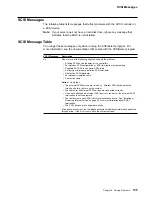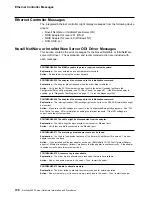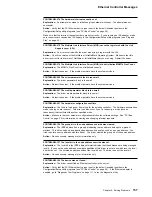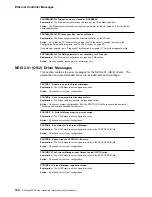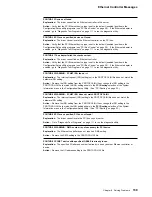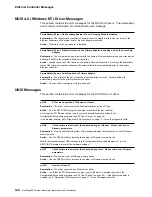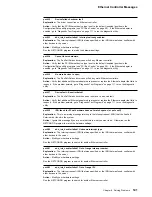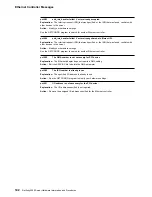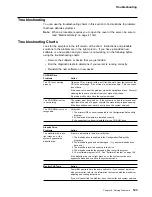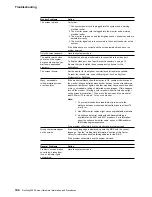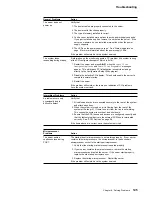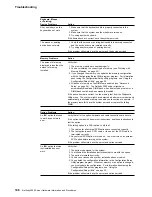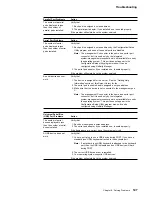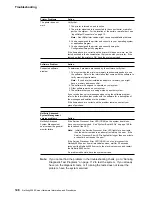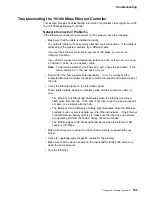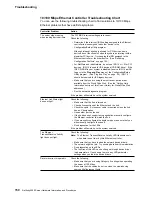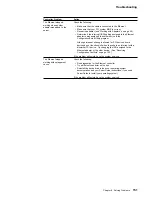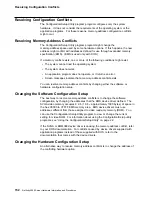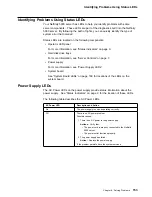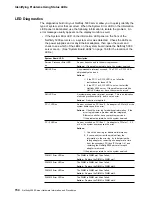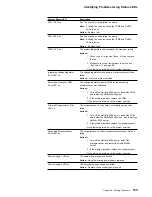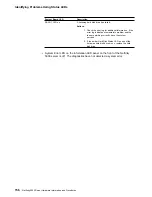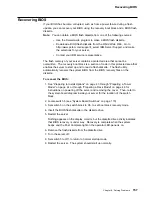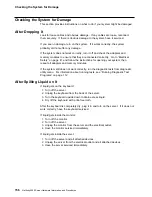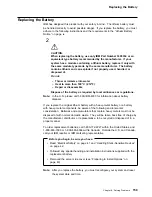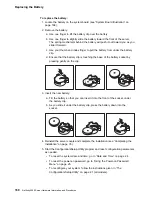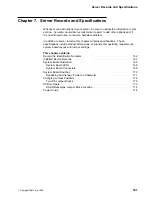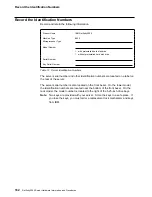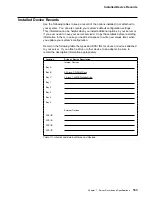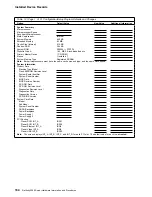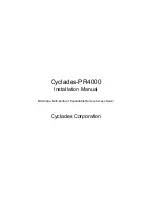
Troubleshooting
Troubleshooting the 10/100 Mbps Ethernet Controller
This section provides troubleshooting information for problems that might occur with
the 10/100 Mbps Ethernet controller.
Network Connection Problems
If the Ethernet controller cannot connect to the network, check the following:
Make sure that the cable is installed correctly.
The network cable must be securely attached at all connections. If the cable is
attached but the problem persists, try a different cable.
If you set the Ethernet controller to operate at 100 Mbps, you must use
Category 5 cabling.
If you directly connect two workstations (without a hub), or if you are not using
a hub with X ports, use a crossover cable.
Note: To determine whether a hub has an X port, check the port label. If the
label contains an
X, the hub has an X port.
Determine if the hub supports auto-negotiation. If not, try configuring the
integrated Ethernet controller manually to match the speed and duplex mode of
the hub.
Check the Ethernet lights on the information panel.
These lights indicate whether a problem exists with the connector, cable, or
hub.
– The Ethernet Link Status light illuminates when the Ethernet receives a
LINK pulse from the hub. If the light is off, there might be a bad connector
or cable, or a problem with the hub.
– The Ethernet Transmit/Receive Activity light illuminates when the Ethernet
controller sends or receives data over the Ethernet network. If the Ethernet
Transmit/Receive Activity light is off, make sure that the hub and network
are operating and that the correct device drivers are loaded.
– The Ethernet Speed 100 Mbps light illuminates when the Ethernet LAN
speed is 100 Mbps.
Make sure that you are using the correct device drivers, supplied with your
server.
Check for operating-system-specific causes for the problem.
Make sure that the device drivers on the client and Netfinity 5000 server are
using the same protocol.
Test the Ethernet.
Chapter 6. Solving Problems
149

